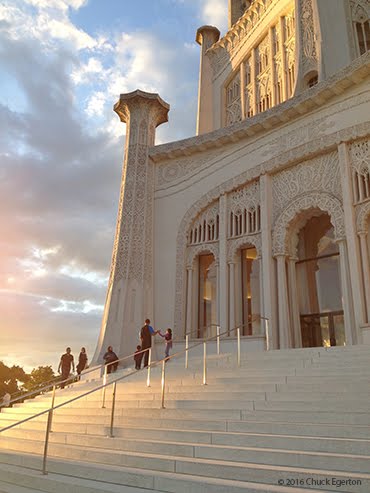
"THE One true God may be compared unto the sun and the believer unto a mirror. No sooner is the mirror placed before the sun than it reflects its light. The unbeliever may be likened unto a stone. No matter how long it is exposed to the sunshine, it cannot reflect the sun. Thus the former layeth down his life as a sacrifice, while the latter doeth against God what he committeth. Indeed, if God willeth, He is potent to turn the stone into a mirror, but the person himself remaineth reconciled to his state. Had he wished to become a crystal, God would have made him to assume crystal form. For on that Day whatever cause prompteth the believer to believe in Him, the same will also be available to the unbeliever. But when the latter suffereth himself to be wrapt in veils, the same cause shutteth him out as by a veil...."
-The Báb, Selections from the Writings of the Báb, Excerpts from the Persian Bayán








